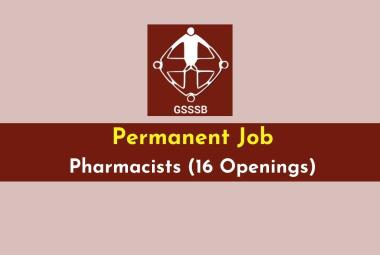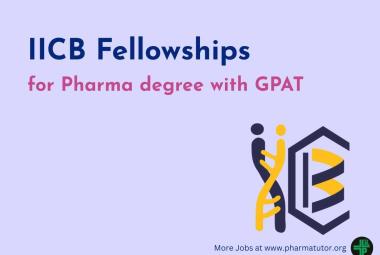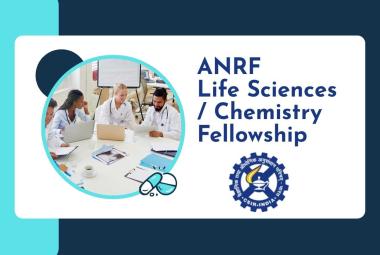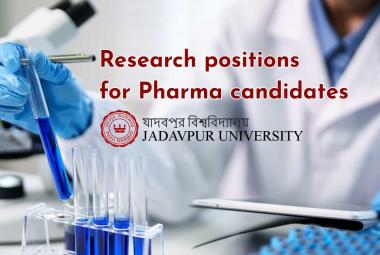{ DOWNLOAD AS PDF }
 ABOUT AUTHORS
ABOUT AUTHORS
BALVINDER SINGH*1, PAWAN JALWAL 1, VIKASH KUMAR RUHIL 2
1Shri Baba Mastnath Institute of Pharmaceutical Sciences & Research,
Baba Mastnath University, Asthal Bohar, Rohtak, Haryana, India
2P.D.M. College of Pharmacy, P.D.M. University, Bahadurgarh, Haryana, India
*balvindersinghpharmaco@gmail.com
ABSTRACT
What started as imparting education to medical healthcare professionals, regarding pharmaceutical products by various pharmaceutical companies, has now become a grave, giant problem in the category of bribery and to be more precise, corruption in this 21st century. Now detailing of pharmaceutical company product has included giving free physician’s sample packs, prescription pads, pen and includes an entire range of latest electronic gazettes of mobile phones, laptops, tablets, AC, Refrigerator, LED TV, sponsoring a conference, refreshment to all expenses like return air ticket with free boarding and lodging in national or international tourist spot or hilly area. The real problem is that nothing comes free; all these expenses will add to cost of medicines and medical fraternity will heed least to quality of medicine. Now the market is flooded with abundant, spurious, sub-standard medicines; as pharmaceutical companies have the confidence of selling these products by shelling huge, attractive offers/gifts to some of greedy doctors, who fall prey to their lucrative offers. In this article, the aim is to probe this association or rather; we can call nexus between the medical healthcare professionals and various pharmaceutical companies. Various aspects are covered in this article, like….How this association works? What is the modus operandi and rationale of this association? Various angles of this association; from medical healthcare professionals, medical councils, pharmaceutical companies and society point of views are covered.
[adsense:336x280:8701650588]
Reference Id: PHARMATUTOR-ART-2575
|
PharmaTutor (Print-ISSN: 2394 - 6679; e-ISSN: 2347 - 7881) Volume 6, Issue 3 Received On: 15/01/2018; Accepted On: 02/02/2018; Published On: 01/03/2018 How to cite this article: Singh B, Jalwal P, Ruhil VK; Nexus between Medical Healthcare Professionals and Pharmaceutical Companies : Boon or bane for Patients; PharmaTutor; 2018; 6(3); 17-22; http://dx.doi.org/10.29161/PT.v6.i3.2018.17 |
INTRODUCTION:
Since vedic era, human beings suffer from various ailments and diseases. To treat the patients, ayurvedic Vaidyas were there. With passage of time, this pious, holy alliance of doctor and patient is expanded and entered the third party of retail chemist. Slowly, the fourth and fifth party of Manufacturer and Distributor entered this triangle. In modern era, the Indian pharmaceutical industry of allopathic medicines started with a Calcutta based company named Bengal Chemical and Pharmaceutical Company; in the year 1901. This tiny step of manufacturing medicine in our country has now grown into a vast industry of Rs. 860 billion for the year ending March 2016; with more than 24000 pharmaceutical companies.(Saurabh,2017), (Sandhya,2017).
India has a vast population of more than 1.26 billion people. The number of doctors to cater their healthcare needs; are very few. There is lots of pressure of vast number of patients per doctor.
There are many divisions of medicine practice, like allopathic, ayurvedic, homeopathic, unani, siddha, acupuncture, acupressure, naturopathy etc. In this article, the allopathic medical health professionals will be considered, as this is the main and leading line of medical health professionals.
Initially, the pharmaceutical company’s representative met medical health professionals (Doctors) and imparts knowledge about new drugs/ medicines, launched by their pharmaceutical company. With passage of time, this practice of imparting only knowledge of medicines was modified and supplemented with additional points like giving physician’s trial samples of new drugs/ medicines. These trial packs are supposed to be given to poor patients, free of charge, by the physician. By this, doctor will also check the quality of product by seeing the improvement in the condition of patient. This tradition of free sample is further augmented by occasional gifts on New Year, diwali, holi or other festival or on the occasion of new product launch. The small gifts include pen, writing pads, stethoscope, calendar, table top, paper weight or other utility items, which are helpful in the examination of patients by the doctors. Company’s name and medicine brand names are printed on these promotional gifts. With further passage of time, increasing patients number pressure, increasing number of more than 24000 pharmaceutical companies, the need or requirement of medical health professional changes. Now doctors do not get time for up gradation of their knowledge. The pharmaceutical company’s representatives, although tried their level best, but cannot provide all the required information. So the doctors have to conduct Doctor’s Associations meetings (Continuing Medical Education (CME)/ conferences), to discuss current progress in the field of medical profession and new medicines pros and cons. Other Doctors have to attend these medical conferences/ CMEs. Monetary inputs are required for organizing an event, as well as boarding and lodging of participating lecture delivering doctors and delegates.
There is a greed or hunger of more sales in various pharmaceuticals companies. This leads to various ponzy, lucrative schemes of offering big gifts, from latest and sophisticated electronic gazettes like mobile phones, laptop, tablet, AC, refrigerator, LED TV etc. to hard cash. This also includes sponsoring CME / Conference’s refreshment to boarding and lodging, in national or international tourist spot or hilly area; with to and fro / return air tickets for doctor as well as spouse.As we all know that nothing comes for free. These freebies always come with a string. The pharmaceutical companies, on one hand take the promise from doctors for prescribing their products; and on the other hand will not bear the cost of these freebies. These pharmaceutical companies will simply pass on this burden to poor and ignorant patients. These poor patients think that their respected doctors have prescribed a very good quality costly medicine, that’s why they have to shell out extra money.
In this paper, the point of views of Pharmaceutical companies, Doctors and Medical Council of India will be discussed.
Pharmaceutical Company’s Point of View:
In today’s era, most of the companies, including pharmaceutical companies are doing business to earn money and more money. That’s the harsh truth. There are more than 24000 pharmaceutical companies. They follow the principle of “Everything is fare in war and competition”. They simply want to achieve their goal.
The real motto of ‘Service to Mankind, poor patients’ is lost somewhere, amid profit and other monetary gains. There is cut throat competition. Every company tries their level best to achieve maximum sales volume of their medicines, month after month, year after year…(Albert,2014), (Baines, 2010), (Bansal and Das, 2005), (Centad, 2010), (Maria, 2016), (Saurabh,2017), (The George Washington Univ., 2009) For achieving this target; they hire best marketing professionals from top to bottom i.e. from general manager/ marketing manager to medical sales representative. These companies also try to come out with latest niche products, superior and best quality products by using fully automatic machinery with all latest Good Manufacturing Practices. They come out with one of best product with International Level quality. In this whole process, the cost of product shoots up and profit comes down.
Now see the irony, some small fishes spoil this game, just as one rotten apple spoils other apples of the basket. These so called small fishes are bad pharmaceutical companies. They uses cheap raw material/ APIs, do not comply with Good Manufacturing Practices (GMP) and try to follow short cuts for smaller-smaller gains. They will try to bribe the major player; here the respected honest doctor.
As Doctors are also human beings, few doctors will also join and help these game spoilers. What started as small number of bad players, have now rapidly engulfing the Pharmaceutical industry. Many a times the bigger pharmaceutical companies also succumb to the pressure and treads into wrong path.
Medical Health Professional Point of View (KRC, 2011):
Medical Health Professionals (Doctors) thoroughly explore knowledge about medicines during their studying in MBBS/ BAMS/ BHMS/ BUMS/ MD/ MS/ BDS/ MDS etc. Then they start practicing their knowledge by diagnosing the patients and prescribing best medicines, accordingly. During their course study, they only study generic names of medicines, whereas various pharmaceutical companies keep different brand name of same medicine; so as to differentiate between themselves. Now, every pharmaceutical company’s representative meets same doctor for their respective brand promotion of that single medicine. For example, let us say a doctor is approached by more than ten companies to promote their Aceclofenac medicine’s different brands. On an average, a doctor is visited by more than 10 medical representatives, everyday.
Generally pharmaceutical company’s medical representative detailed the medicine from visual aid/ power point presentation on laptop/ tablet etc. In the end of detailing, based on the interest shown by the doctor, where medical representative feels that doctor can prescribe that medicine brand, the doctor is given physician trial sample medicine packs, small gifts like pen, writing pad, key chain, table top, calendar, stethoscope etc. The purpose behind giving these small gestures as gift is that these small souvenirs will serve as soft reminders of these products and company, even after the visit of the medical representative.
NOW YOU CAN ALSO PUBLISH YOUR ARTICLE ONLINE.
SUBMIT YOUR ARTICLE/PROJECT AT editor-in-chief@pharmatutor.org
Subscribe to Pharmatutor Alerts by Email
FIND OUT MORE ARTICLES AT OUR DATABASE
Now the general questions arise, why doctors permit or give their precious time out of their busy schedule, to the pharmaceutical company’s medical representative? The standard answer is as Doctors are very busy in service of patients, they do not get time to study which are the brands of same medicine. Secondly which brands are available at nearest chemist shops? Thirdly, which new brands are launched in the market? Fourthly, which brand is more economic/ patient friendly, tastewise/ flavorwise etc? And so on there are so many reasons. Although there are CMEs i.e continuing medical education program and conferences, being conducted by Medical Council of India and other professional bodies, but still their numbers/ frequency are very less and inadequate. Moreover they are being conducted at far off place from the town/ city of doctor’s clinic / hospital. So the medical representative is trained by pharmaceutical company in the field of pharmacology of the medicine. Hence the medical representative can discuss the mechanism of action (pharmacodynamics), pharmacokinetics, dosage, adverse effects, contraindications, drug interactions etc. In this system the doctors feels cheated many a times, because besides these pharmacology points, the medical representative is trained in the marketing aspects, which includes highlighting their own medicine’s plus points and competitor’s negative points. The problem comes, when they dilute or remain silent and do not inform the negative points of their own medicine brand.
So doctors feel that Continuing Medical Education (CME) program’s purpose, served by the pharmaceutical company’s medical representative, is up to some extent only. For fulfilling the gap, Doctors still feel the need to attend the Continuing Medical Education (CME)/ conferences. Organizing Continuing Medical Education (CME)/ Conferences requires lot of money for boarding and lodging, Travelling Allowances, Dearness Allowances/ Honorarium of the speakers and delegates. This monetary burden is shared by the pharmaceutical companies. As nothing comes free in this world, so the medical healthcare professionals, doctors feel their moral duty to share the burden by supporting the pharmaceutical company, who came forward to help, monetarily. The doctors prescribe medicines of those pharmaceutical companies. Now emotions took the front seat and the quality, price to patient of the medicine, takes back seat.
Sometimes greed overtook the other aspects and certain pharmaceutical companies try to bribe the medical fraternity, by providing return air tickets to doctors and their spouse to attend Continuing Medical Education (CME)/ Conferences/ visit to tourist places/ hills with lavish boarding and lodging facility. Few greedy doctors in the Medical Healthcare Profession also accept these freebies. Now, the number of these foul players is increasing day by day. Now the time is such that these doctors want to live lavish lifestyle with all the modern facilities, latest electronic gazettes like i phone, AC, laptop, TV, refrigerator etc. As these freebies are of high end or costly, so companies go all out and do not bother to maintain the professional ethics.
Society Point of view:
Now, when such things happen in society, the honest people, Doctor, pharmaceutical companies raise questions (Marcia, 2009), (P. Norris et.al. 2005). Although both these fraudulent doctors as well as pharmaceutical companies claim that, they are providing best quality products / medicines at most economic price to the patients; but still eyebrows are raised. The million dollar question is how they bear the cost of these high end freebies. All these costs are actually added up in the cost of medicine. These pharmaceutical companies’ products are poor in quality or at least don’t have any extra benefit as claimed by the manufacturer.
The societies look to the various medical councils, health ministry, state and central government for remedy from this menace.
Medical Council of India’s point of view:
Medical Council of India and medical councils of various other countries of world issued various guidelines since 1950’s or even before. (Assoc. of B.P. Ind., 2018), (Cynthia, 2013), (Ernst & Young, 2011), (Kirk and David, 1991), (Shahinul et.al., 2015).
1. As per their guidelines, the pharmaceutical companies can give only small end/ value freebies like pen, writing pad or any other small value aid which can be utilized by doctors in their clinic for patients only. These should not be used by Doctors for their personal use.
2. No TA/DA/return air-ticket should be accepted/ given to Doctors as freebies.
3. No boarding/ lodging of doctors should be borne by the pharmaceutical companies.
4. If refreshment is to be given, it should be very nominal and it should not be lavish.
5. No expensive journal or text book should be distributed by the pharmaceutical companies.
6. The name of pharmaceutical company or brand name should not be printed on freebies.
In some genuine cases/ occasions, the councils have permitted to relax above clauses, but the amount contributed or given as freebies should be very nominal or less and there should not be attached any string or clause of favourism of prescribing medicine brands / over quality. The doctors prescribing nature should not be affected by these freebies. The Medical Council of India had issued very strict guidelines, but there are certain lacunae in the system as the control of Medical Council of India over practicing Doctors is not very strong and there are other associations like Indian Medical Association etc. Recently president of MCI himself faces bribe charges.
Moreover the MCI guidelines can govern practicing doctors only. The Pharmaceutical companies do not come under direct or indirect control of MCI. (K.P.M.G., 2017).
So these make the strict implementation of these guidelines, a little bit difficult.
Future of this Doctor – Pharmaceutical Company’s association vis-a-vis Medical Councils/Pharmaceutical Companies Associations/ Councils:
Various associations/ councils of medical profession and pharmaceutical companies along with Health ministry should come forward and draft strict guidelines for various promotional activities, involving all stake holders. It should be stressed that both the stake holders i.e. Doctors and Pharmaceutical Company should take a self restraint and religiously implement the ethical promotional guidelines.
When every pharmaceutical company refrains from this malicious practice of bribing doctors, then there will be healthy competition among pharmaceutical companies to provide a best quality medicine with more benefit to ailing patients.
Similarly Doctors should also refrain from accepting the bribes and in fact black list those pharmaceutical companies, which are involved in such malpractices. Both the stakeholders should work in tandem, with solo aim of social welfare as they are doing a noble profession. It is not said that, they should run NO PROFIT- NO LOSS business. Rather the pharmaceutical company should keep nominal profit margin, so that they should run a nominal profitable organization with a strong goodwill among the patients and Doctors. Similarly the Doctors should realize that they are in a noble profession of service to mankind or helping the ailing patients to recover fast. They should emphasize on the best quality medicines at most economic price to the patient. The CME/conference should serve the purpose of imparting/ sharing medical knowledge of medicines, latest trends/ procedures/ molecules/ practices etc., rather than enjoying a lavish dinner/ lunch party at some hilly / tourist location/ resort/ five star hotel.
NOW YOU CAN ALSO PUBLISH YOUR ARTICLE ONLINE.
SUBMIT YOUR ARTICLE/PROJECT AT editor-in-chief@pharmatutor.org
Subscribe to Pharmatutor Alerts by Email
FIND OUT MORE ARTICLES AT OUR DATABASE
CONCLUSION:
Now the time has come, when pharmaceutical companies as well as medical healthcare professionals (Doctors) are more aware about their social image in social media. Any fraudulent activity is quickly criticized in public. They will be trolled in social media. So both the parties of interest should keep their stakes of serving the ailing society, at best levels of highness. Rather humanity should be free from sufferings, pain and diseases and enjoy full of health and mental peace. The strict disciplinary measures of only Government or MCI/ councils, will not help in curbing this nuisance practices. This will end only at that time, when both parties; Doctors as well as Pharmaceutical Companies realize themselves of their social duties and they start religiously implementation of self restraint. Initially the task is very difficult, but slowly slowly they will pick up and come back; and tread normal path of ethical and professional practice of serving society with a being human approach.
REFERENCES:
1. Albert van Maaren Leergang VIII, 2012 – 2014; Pharmaceutical Industry & Compliance, Here comes the Sun? What is the role of the compliance function in pharmaceutical companies in the Netherlands in the disclosure of financial relations with HCPs’ and health institutions? 30 AUG 2014.
2. Association of the British Pharmaceutical Industry; CODE OF PRACTICE for the PHRMACEUTICAL INDUSTRY, 2016 together with the PRESCRIPTION MEDICINES CODE OF PRACTICE AUTHORITY Constitution and Procedure. 2016.
3. Baines, Donald A., “Problems Facing the Pharmaceutical Industry and Approaches to Ensure Long Term Viability” (2010). Master of Science in Organizational Dynamic Theses 33, University of Pennsylvania. hpp: // repository. Upenn.edu/od _theses _msod/33.
4. Bansal, R.K. and Das Sanjoy; “UNETHICAL RELATIONSHIP BETWEEN DOCTORS AND DRUGS COMPANIES”, JIAFM 2005: 27 (1) ; pp 40-42.
5. Centre for Trade and Development (Centad), New Delhi ; Competition Law and Indian Pharmaceutical Industry; 2010.
6. Cynthia F. Kleppinger, CDER; Investigator Responsibilities – Regulation and Clinical Trials, FDA’S 2013 Clinical Investigator Training Course , November 13, 2013; 12- Kleppinger_CI Training_Nov_ 2013_final.
7. Ernst & Young; Pharmaceutical marketing: ethical and responsible conduct, A survey on effectiveness of the guidelines, September 2011.
8. Kirk B Johnson and David Orentlicher; Guidelines on Gifts to Physicians from Industry: An Update COUNCIL ON ETHICAL AND JUDICIAL AFFAIRS, AMERICAN MEDICAL ASSOCIATION; Kirk B Johnson, American Medical Association and David Orentlicher, Council on Ethical and Judicial Affairs. FOOD AND DRUG LAW JOURNAL, Vol. 47, October 9,1991.
9. KPMG Tax Flash News; Expenditure on Freebies are allowed as Business expenditure since MCI Regulations are not applicable to Pharma Companies; 20 January 2017.
10. KRC surveyofphysicians_1 ; Survey of Physicians About Pharmaceutical and Biotech Research Company Activities and Information; March 2011.
11. Marcia Angell; Drug Companies & Doctors : A Story of Corruption ; January 15 , 2009.
12. Maria de Molina, 54, 7a /28006 Madrid; CODE OF PRACTICE FOR THE PHARMACEUTICAL INDUSTRY 2016, www.codigofarmaindustria .org.
13. P. Norris et.al; Drug promotion – What we know? What we have yet to learn? ; Reviews of materials in the WHO/ HAI database on drug promotion; World Health Organization and Health Action International 2005.
14. Sandhya Srinivasan, Consulting Editor, Indian Journal of Medical Ethics, freelance journalist and researcher, India; The Drug Industry and Doctors: An Unholy Alliance; (29/09/2017).
15. Saurabh Kumar Saxena, Department of Management, Rakshpal Bahadur Management Institute , Bareilly – 243001 , India. A review of marketing strategies work by different pharmaceutical companies, 10.1.1.512.3138; (29/09/2017).
16. Shahinul Alam et.al.; Ethical Relation between Physicians and Pharmaceutical Industries in the Perspectives of Bangladesh ; Bangladesh Journal of Bioethics 2015 Vol.6 (1):1-5.
17. The George Washington University; Impacts of Pharmaceutical Marketing on Healthcare Services in the District of Columbia. Prepared by The George Washington University, School of Public Health and Health Services Washington , DC for the District of Columbia Department of Health; June 15 , 2009.
NOW YOU CAN ALSO PUBLISH YOUR ARTICLE ONLINE.
SUBMIT YOUR ARTICLE/PROJECT AT editor-in-chief@pharmatutor.org
Subscribe to Pharmatutor Alerts by Email
FIND OUT MORE ARTICLES AT OUR DATABASE









